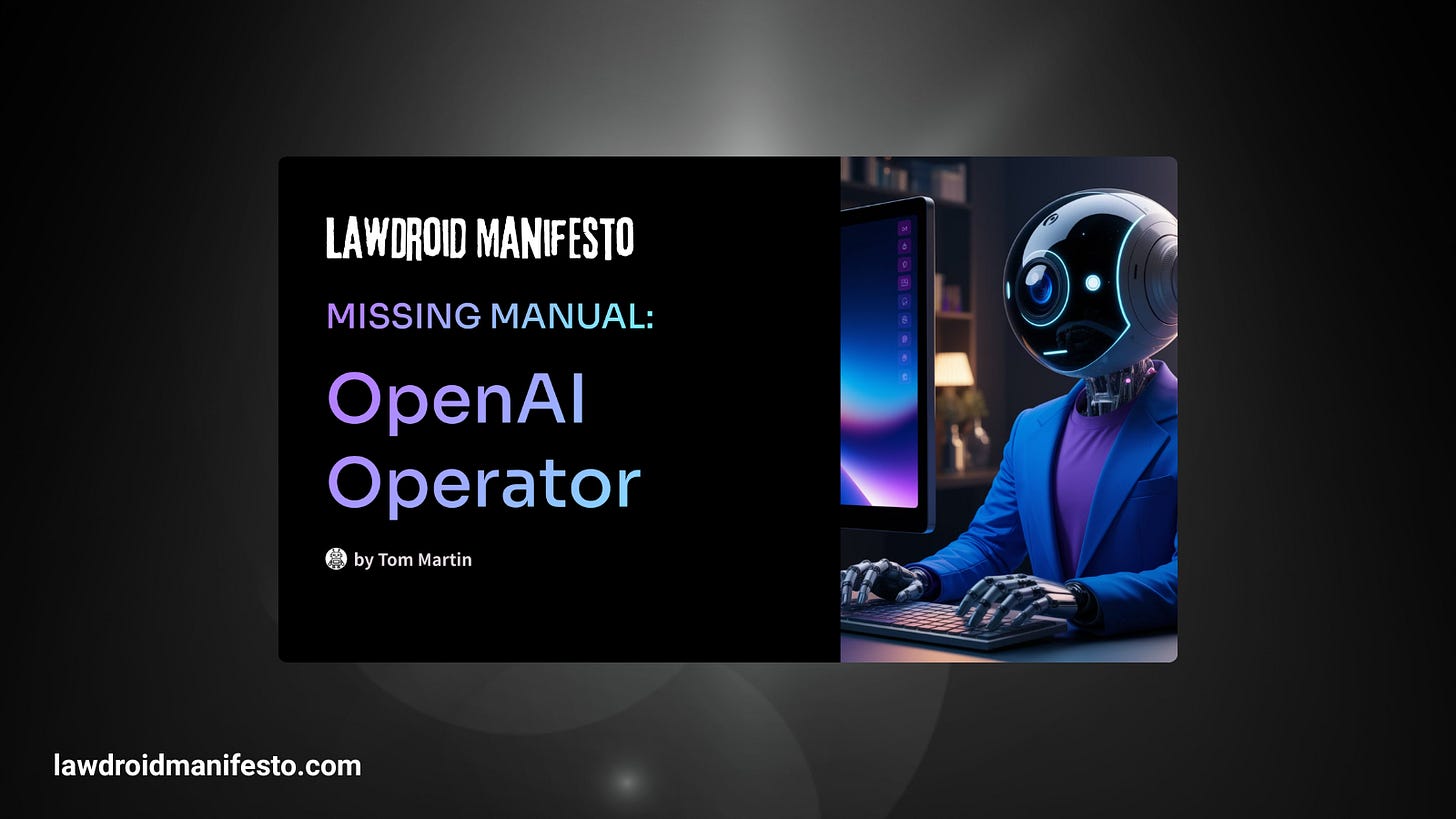Daily News: April 10, 2025
AI news that pops: daily insights, fast takes, and the future right in your inbox.
Hey there friends👋! In today’s edition, you’re getting 5 🆕 news items and my take on what it all means. That’s it — delivered to your inbox, daily.
Subscribe to LawDroid Manifesto and don’t miss tomorrow’s edition:
LawDroid AI Daily News, is here to keep you up to date on the latest news items and analysis about where AI is going, from a local and global perspective. Please share this edition with your friends and colleagues and remember to tell me what you think in the comments below.
Today’s News
Here are the top 5 recent news items on artificial intelligence:
1. Google Implements AI to Expedite Power Grid Connections
Google, a unit of Alphabet Inc, is partnering with PJM Interconnection, the largest electrical grid operator in North America, to implement artificial intelligence (AI) technologies aimed at accelerating the connection of new electricity supplies to the power grid. With electricity demand surging—driven in part by the expansion of Big Tech data centers—the sector faces historic delays in integrating new energy sources such as wind, solar, and natural gas. The collaboration marks the first comprehensive use of AI to manage an interconnection queue.
2. OpenAI Countersues Elon Musk Amid Legal Dispute
OpenAI has filed a counterclaim against Elon Musk, accusing him of unfair competition and interfering with its investor and customer relationships. This legal action escalates a dispute that began when Musk, a founding investor in OpenAI, sued the company over what he viewed as a betrayal of its nonprofit founding principles. OpenAI’s counterclaim alleges Musk made a deceptive $97.4 billion bid in February 2025 to acquire a controlling stake in the company, a figure reportedly inspired by a science fiction novel.
Source: https://apnews.com/article/31e3d238be1295ab23505b063693b58e
3. James Cameron Advocates AI to Reduce Film Production Costs
James Cameron, renowned filmmaker and Academy Award winner, advocates for the use of generative artificial intelligence (AI) to reduce the cost of producing blockbuster films. Speaking on Meta CTO Andrew Bosworth’s podcast “Boz to the Future,” Cameron emphasized the need to cut expenses on effects-heavy movies and sees AI as a solution to accelerate visual effects workflows without reducing the workforce. He believes that AI can enhance production efficiency rather than eliminate jobs.
Source: https://www.businessinsider.com/james-cameron-ai-blockbuster-films-costs-2025-4
4. Synthesia Partners with Shutterstock to Enhance AI Avatars
British AI startup Synthesia, valued at $2.1 billion, has signed a licensing agreement with Shutterstock to use its corporate video library to train its AI models that generate realistic digital avatars. This partnership aims to enhance avatar realism by improving their expressions, vocal tones, and body language. Synthesia will not convert Shutterstock footage into avatars but use it to better model workplace interactions. The company has also taken steps to fairly compensate human actors whose likenesses power its avatars by offering them company stock.
5. Amazon CEO Highlights AI Investment in Shareholder Letter
In his annual shareholder letter, Amazon CEO Andy Jassy emphasized the company’s significant investment in artificial intelligence (AI), arguing that such spending is vital to remain competitive and fulfill its customer-focused mission. Jassy outlined the necessity of substantial capital allocation for AI chips and data centers, underlining the strategic importance of generative AI tools, including chatbots and a reimagined Alexa voice assistant, now featuring technology from startup Anthropic in which Amazon has invested approximately $8 billion.
Today’s Takeaway
I see these news items as clear evidence we’re moving rapidly into an era where AI’s unprecedented opportunities are increasingly intertwined with substantial risks and conflicts. Google’s initiative to improve the electrical grid via AI is genuinely promising, yet it underscores how quickly tech giants are becoming gatekeepers of critical public infrastructure. The escalating legal feud between OpenAI and Musk is a stark reminder that the power and wealth accumulating around AI might soon overshadow its original humanitarian aspirations, replacing idealism with corporate rivalry. Cameron’s embrace of AI filmmaking and Synthesia’s hyper-realistic avatars show impressive creative potential, but also foreshadow a future of blurred authenticity, raising urgent questions about identity, consent, and employment. Finally, Amazon’s massive AI investment highlights a troubling concentration of AI capability and influence among an elite few corporations, potentially at the expense of competition and fairness. Overall, these developments strongly suggest we must act urgently to put robust ethical and regulatory safeguards in place, or risk allowing AI to deepen social inequalities, privacy threats, and unchecked corporate power.
Subscribe to LawDroid Manifesto
LawDroid Manifesto, your authentic source for analysis and news for your legal AI journey. Insightful articles and personal interviews of innovators at the intersection of AI and the law. Best of all, it’s free!
LawDroid Manifesto is a reader-supported publication. To receive new posts and support my work, consider becoming a free or paid subscriber.
By the way, as a LawDroid Manifesto premium subscriber, you would get access to exclusive toolkits, like the Missing Manual: OpenAI Operator, coming out this month…
With these premium toolkits, you not only learn about the latest AI innovations and news items, but you get the playbook for how to use them to your advantage.
If you want to be at the front of the line to get first access to helpful guides like this, and have the inside track to use AI as a force multiplier in your work, upgrade to become a premium LawDroid Manifesto subscriber today!
I look forward to seeing you on the inside. ;)
Cheers,
Tom Martin
CEO and Founder, LawDroid




